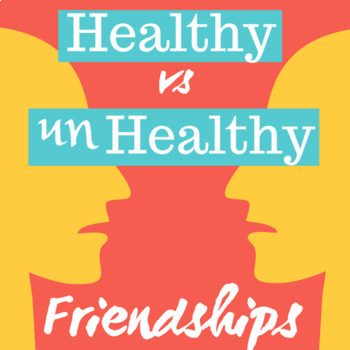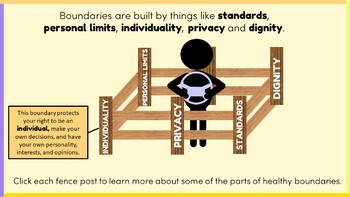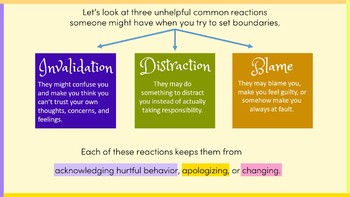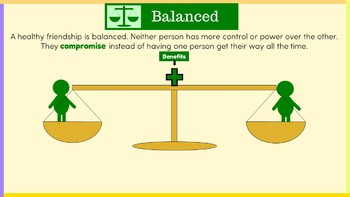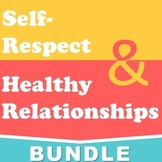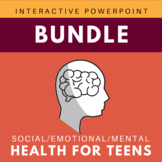Healthy vs Unhealthy Friendships & Relationships- Interactive PowerPoints
- Zip
What educators are saying
Also included in
- This bundle combines my lessons on self-respect and my lessons on healthy and unhealthy friendships & relationships. I highly recommend combining these, as students are more likely to recognize they are in unhealthy relationships when they have a healthy level of self-respect.SUBSCRIBE TO MY NEWPrice $10.00Original Price $14.50Save $4.50
- This bundle includes 13 PowerPoints of my current products for middle school and high school. All the lessons focus on mental, emotional, and social health, as well as character education. They are designed to teach concepts that teens are in great need of learning, but that often aren't taught explPrice $30.00Original Price $48.47Save $18.47
Description
This lesson is designed to teach students about healthy and unhealthy relationships through engaging, visual, interactive PowerPoints.
SUBSCRIBE TO MY NEWSLETTER for a FULL LENGTH freebie!
Overview of 1st PowerPoint:
• Healthy friendships are balanced. Both people are equals and benefit. Unhealthy relationships are imbalanced. One person has more power and gets more benefits.
• Healthy friendships have boundaries. Boundaries protect you and give you ownership over your life. Healthy friends share parts of their lives, but have clear separate identities. Unhealthy friendships have broken boundaries where it's unclear who is control of what.
• Boundaries are built by things like standards, individuality, privacy, personal limits, and dignity.
• Healthy friendships are stable. Both people know what to expect from each other. Unhealthy relationships are unstable and unpredictable. You may feel like you are walking on eggshells.
• Healthy friendships are accepting. Both people feel comfortable and not judged. Unhealthy friendships are not accepting. You may feel you have to win the other person's approval.
• Students learn that while having some problems are normal, some relationships are unhealthy and you may need to distance yourself from it or end it all together to protect yourself.
Overview of 2nd PowerPoint:
• In this lesson, students learn what to do once they've recognized an unhealthy friendship. Some can improve, and some likely won't.
• Students learn to build boundaries by setting out expectations and consequences such as, "I'm not okay with you sharing secrets I've told you with others. If you continue to do that, I won't share personal things with you anymore."
• If the relationship doesn't improve by setting boundaries, distance may be the right option.
• Students learn 3 common red flag reactions to setting boundaries: invalidation, blame, and distraction. In each case, the other person blocks any path to responsibility. If there is no clear road to conflict resolution, an unhealthy friendship will stay unhealthy.
• They learn to emotionally distance themselves from unhealthy people by limiting what kind of information they share.
• Both lessons contain many questions and interactive portions to check for understanding along the way.
Thanks!
-Eve
You may also be interested in:

